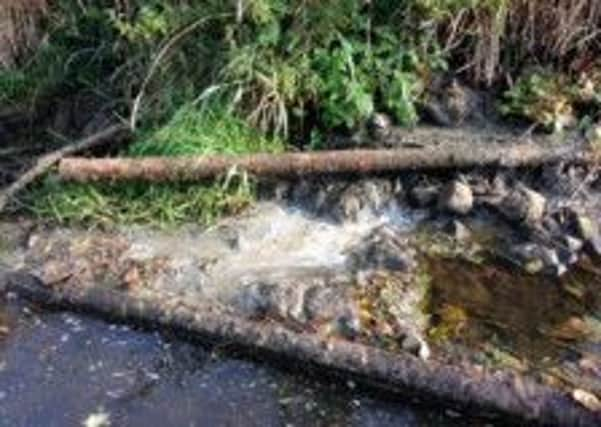Fat and waste polluting the Lagan in village


Gary Houston, a member of Iveagh Angling Club, contacted the Leader after months of waste and fat have been pumped into the river in the area of the Strawhill Estate in the village.
Gary, who is also the Director of the charity ‘Lagan Rivers Trust’, said that the waste is due to a misconnection.
Advertisement
Hide AdAdvertisement
Hide AdGary said: “There are a couple of different kinds of discharges, there is a storm water discharge for rain water and there is waste discharge. What is happening here is that waste and fat from households or businesses is not going in to the sewage works but straight into the river.
“I have contacted the NIEA to try to sort this out; this has been going on for a year. The water quality is not good.”
Gary added: “It is also not good for our equipment. We have expensive waders and we are wading through a layer of fat; we are left covered in it.
“The Lagan Rivers Trust also monitors insect life in the river and that is impacted by pollution.”
Advertisement
Hide AdAdvertisement
Hide AdA Department of the Environment spokesman said: “Further to this inquiry, I can confirm that we have been investigating a low severity pollution incident affecting the River Lagan at Donaghcloney which was brought to our attention by a local angler in April 2013. Further photographs of this discharge were submitted to the Department on September 27, 2013. The discharge is issuing from a storm drainage network which serves a large proportion of the village of Donaghcloney.
“It is suspected that the problem is being caused by a number of misconnected sewage outlets to the storm drainage system from domestic and potentially commercial premises. Investigation of problems of this nature is both lengthy and complicated and these investigations are ongoing. The impact on the River Lagan is localised and is likely to have been ongoing for a considerable time. As faults are found, the owners of the premises responsible will be required to rectify the problems.
“Updates in the investigation will be provided at forthcoming Catchment Stakeholder Group meetings.”